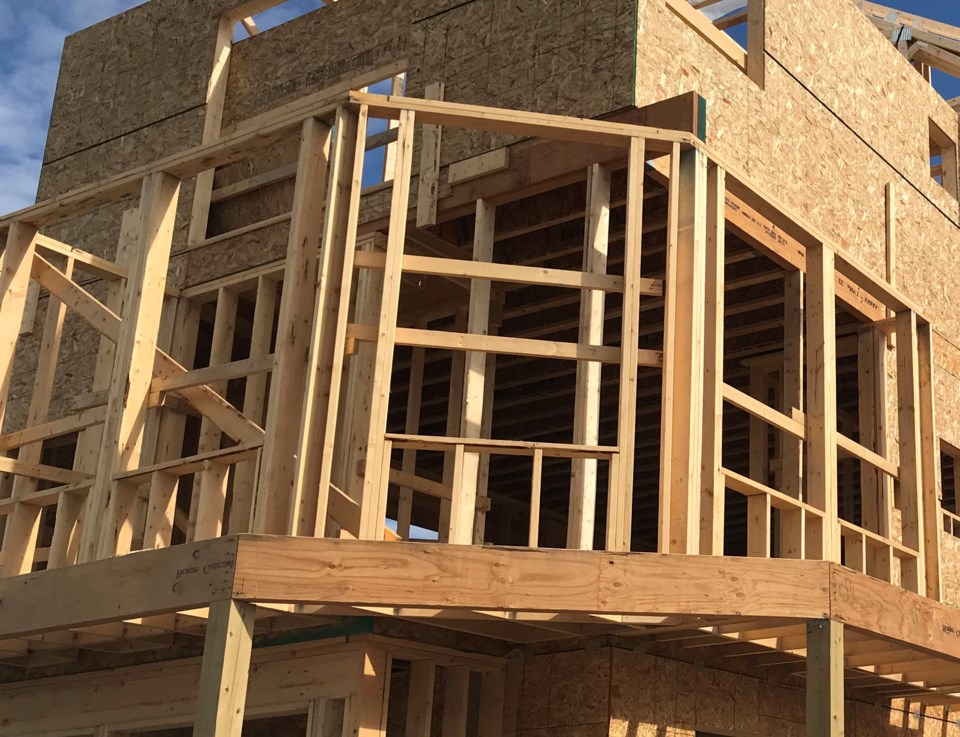Council on Monday approved updating the city's building/plumbing and property enhancement bylaws.
A report to council notes there’s been an unprecedentedly high volume of building permit and construction activity in Delta, resulting in a higher number of community concerns about construction activity and impacts on neighbourhoods.
Notwithstanding the COVID-19 pandemic, in 2020, the Community Planning and Development Department issued approximately 1,900 building permits for all types, exceeding the previous four-year average (2016 to 2019) by approximately 18 percent.
The report also notes building permit volumes have continued to rise significantly in 2021.
By September 2021, building permit volumes already exceeded the total number of permits issued in each of 2016 , 2017, 2018, and 2019, and were tracking well ahead of the pace of permits in 2020.
As a result, bylaw updates were proposed to address concerns about construction activities.
The report notes that, currently, building permits expire after six months if the work has not commenced since the date of permit issuance, or after two years if the work is not completed.
For projects that are not complete after two years, the old bylaw provision could create situations where staff must choose to either extend or cancel a building permit if the work is incomplete.
Under the new building/plumbing bylaw, a Delta building official would be able to issue a compliance order to establish appropriate conditions in conjunction with a building permit extension.
If the property owner fails to meet those conditions within the specified time period, the city would seek compliance at the property owner's cost, in addition to any fines levied for bylaw offences.
The enhanced bylaw provisions are to allow the city to better support neighbourhoods that are dealing with lengthy and unsightly residential construction projects, the report adds.
Staff have also included offences in the bylaws to penalize unsightly or neglected construction sites.
A building official will also have broader discretion to require a building permit for more retaining structures on steep slopes, including those that are less than 1.2 metres tall that, until now, didn’t need a building permit.
The revised bylaw also gives staff the authority to conduct inspections related to the more stringent mandatory energy efficiency standards for building construction, including the Energy Step Code.
The revised bylaw also deals with changes to the provincial Building Act which resulted in bylaw enforcement officers no longer being able to enforce aspects of the building/plumbing bylaw that pertain to provincial building regulations.
The bylaw changes enable bylaw enforcement officers to enter sites and issue fines related to non-building code related issues, while leaving building-code related matters with qualified building officials including building inspectors.
Delta has recently established a construction site officer position who is to work positively with the building industry to promote “good neighbour” construction practices, assist Delta residents in navigating the process of legalizing secondary suites and to provide a key point of contact for files involving unauthorized construction.
The report explains that the construction site officer is a staff member within the Community Planning and Development Department who is not a building official or an enforcement officer within the Property Use and Compliance Division.
The construction site officer, as well as any bylaw enforcement officer, will have the authority to engage in limited enforcement activities primarily related to site safety, cleanliness, and other good neighbour matters.
Fines for infractions were also increased.




